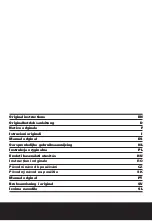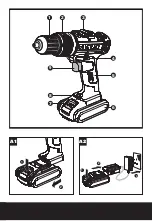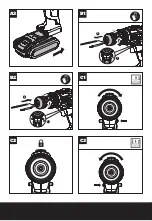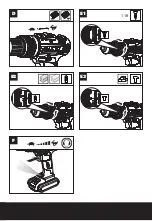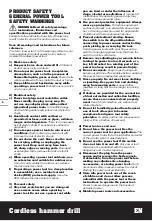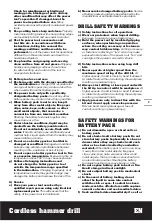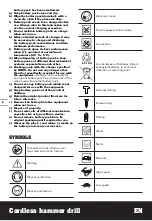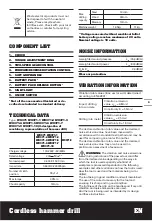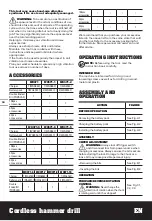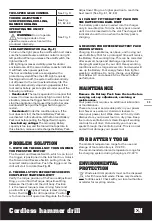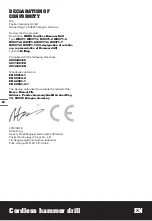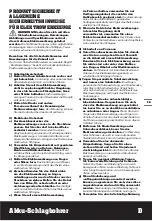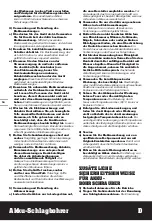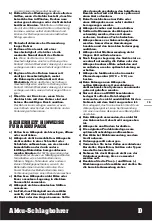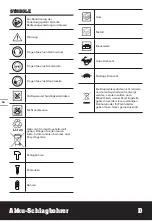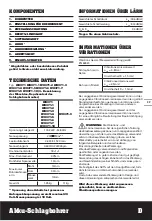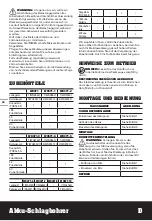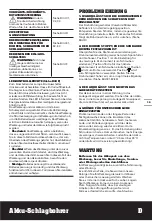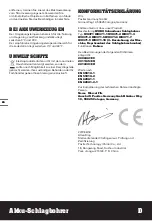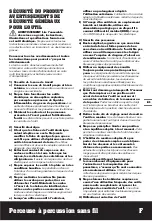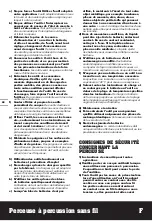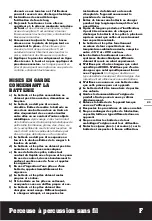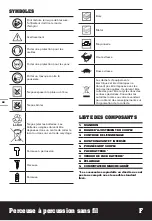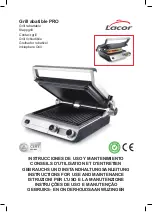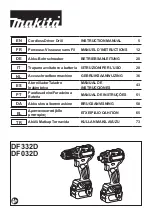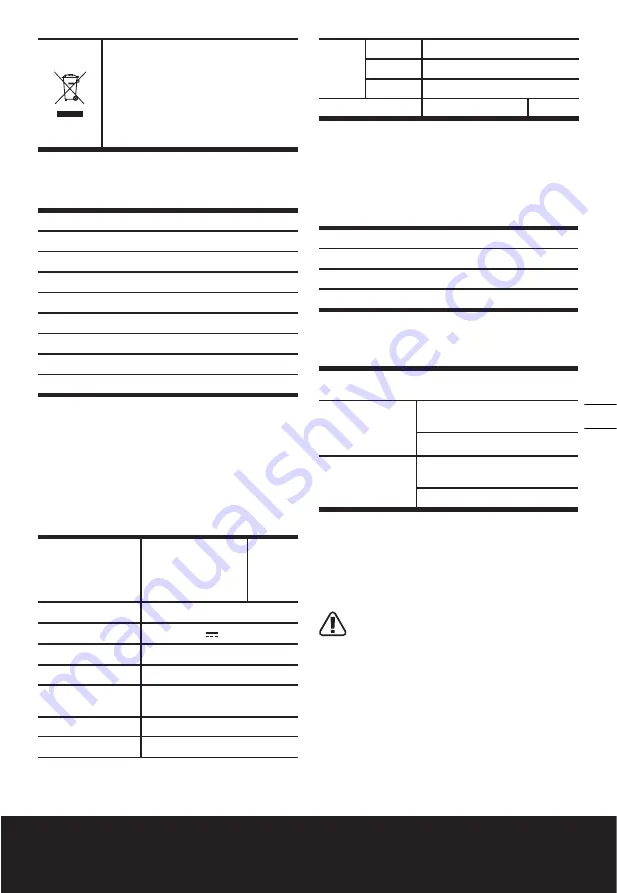
Cordless hammer drill
EN
9
8
Waste electrical products must not
be disposed of with household
waste. Please recycle where
facilities exist. Check with your local
authorities or retailer for recycling
advice.
COMPONENT LIST
1. CHUCK
2. TORQUE ADJUSTMENT RING
3. TWO-SPEED GEAR CONTROL
4. FORWARD/REVERSE ROTATION CONTROL
5. SOFT GRIP HANDLE
6. BATTERY PACK *
7. BATTERY PACK RELEASE BUTTON *
8. SIGHT LIGHT
9. ON/OFF SWITCH
* Not all the accessories illustrated or de-
scribed are included in standard delivery.
TECHNICAL DATA
Type
WX371 WX371.1 WX371.2 WX371.3
WX371.4 WX371.5 WX371.6 WX371.7
WX371.9 WX371.10 (3-designation of
machinery, representative of hammer drill)
WX371 WX371.1
WX371.2 WX371.3
WX371.4 WX371.5
WX371.6 WX371.7
WX371.10
WX371.9
Charger voltage
100-240V ~50/60Hz
Rated voltage
20V Max**
No load speed
0-400/0-1500 min
Impact rate
0-6400/0-24000bpm
Number of clutch
position
18+1+1
Max torque
40N.m
Chuck capacity
13mm
Max.
drilling
capacity
Steel
13mm
Wood
30mm
Masonry
10mm
Machine weight
1.35kg
1.1kg
** Voltage measured without workload. Initial
battery voltage reaches maximum of 20 volts.
Nominal voltage is 18 volts.
NOISE INFORMATION
A weighted sound pressure
L
pA
: 76,4dB(A)
A weighted sound power
L
wA
: 87,4dB(A)
K
PA
& K
WA
3.0dB(A)
Wear ear protection.
VIBRATION INFORMATION
Vibration total values (triax vector sum) determined
according to EN 62841:
Impact drilling
into concrete
Vibration emission
value a
h,ID
= 4,8m/s²
Uncertainty K = 1,5m/s²
Drilling into metal
Vibration emission
value a
h,D
= 2,5m/s²
Uncertainty K = 1,5m/s²
The declared vibration total value and the declared
noise emission value have been measured in
accordance with a standard test method and may be
used for comparing one tool with another.
The declared vibration total value and the declared
noise emission value may also be used in a
preliminary assessment of exposure.
WARNING:
The vibration and noise emissions
during actual use of the power tool can differ
from the declared value depending on the ways in
which the tool is used especially what kind of
workpiece is processed dependant on the following
examples and other variations on how the tool is used:
How the tool is used and the materials being cut or
drilled.
The tool being in good condition and well maintained.
The use of the correct accessory for the tool and
ensuring it is sharp and in good condition.
The tightness of the grip on the handles and if any anti
vibration and noise accessories are used.
And the tool is being used as intended by its design
and these instructions.


